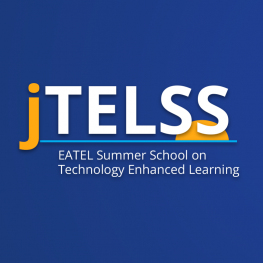Speakers
Sebastian Gombert
DIPF, GermanyStart
17/05/2024 - 16:00
End
17/05/2024 - 17:30
Language Technology for Content Scoring and Intelligent Tutoring Systems
Friday 17/05 16:00-17:30h
Workshop Space A
Needs Analysis
Since the introduction of ChatGPT in late 2022, Artificial Intelligence has become a hype topic. This includes educational uses cases, and the number of papers on the usage of large language models for educational purposes has exploded since. However, the application of AI in education has a decades-long history that goes far beyond prompting an LLM until it does what you want. One prominent use case of AI in education are Intelligent Tutoring Systems (ITS). ITS can be applied to a manifold of different topics and content areas and can thus be of use for many TEL use cases. In this workshop, we will dive into two core components of modern ITS: Free-text Content Scoring and Knowledge Tracing.
Learning Objectives
Participants will learn about modern techniques for Free-text Content Scoring and Knowledge Tracing. In the context of Free-text Content Scoring, the Workshop will introduce the concepts of analytic and holistic scoring. Moreover, the linguistic component of (partial) semantic entailment will be introduced as it forms the theoretical basis for modern Content Scoring techniques. In terms of Knowledge Tracing, we will introduce the theoretical framework of Evidence-centered design. Following this, we will discuss modern Deep Knowledge Tracing techniques used for modern ITS systems such as Duolingo.
Pre-activities
Participants should bring Laptops, Tablets or Smartphones, as we will use Hyperchalk whiteboards.
Session Description
In the first 45 minutes, content scoring, knowledge tracing and evidence-centered design are introduced. This is conducted in the form of an interactive classroom session. Following this, participants are grouped into multiple groups. Each group is given a pre-defined topic and is tasked to conceptually design an ITS using the concepts introduced during the first half of the workshop. For this purpose, each group is given a Hyperchalk board where they are required to note down their results. In the end, each group is given 3 minutes to briefly present their results.

